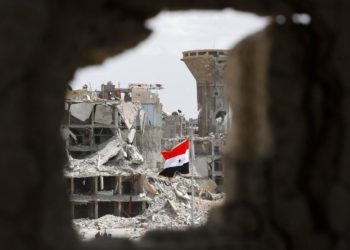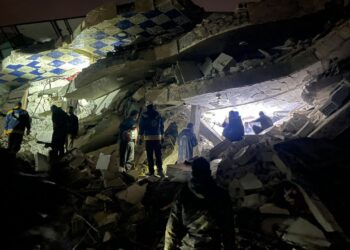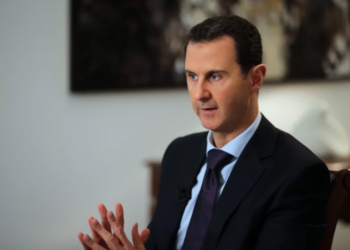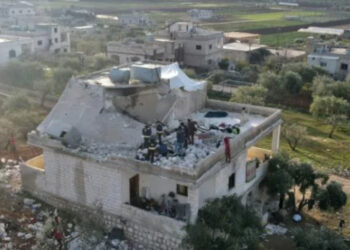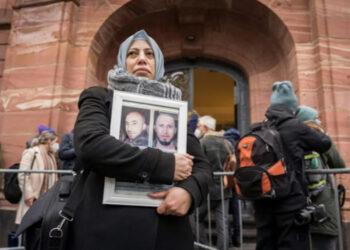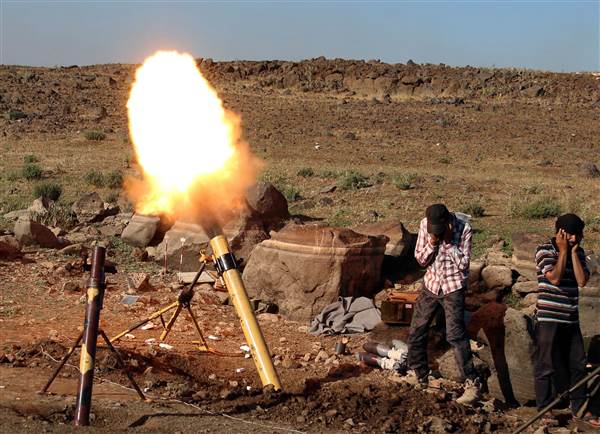A U.S. decision to halt a veiled CIA program of military aid to Syrian rebels disappointed moderate rebels, signaling a possible change on the ground in the civil war, now in its 7th year.
On Wednesday, President Donald J. Trump honored his campaign promise to omit Obama administration’s policy of support for Syrian rebels and terminated support for insurgents fighting against the Syrian regime.
The CIA program since 2013, aiming to funnel weapons and cash and train hand-picked Free Syrian Army (FSA) groups through Turkey and Jordan, helped Syrian rebels make significant advances against the Syrian regime until recently.
But the program failed to stem the growth of radical jihadists taking over lands in northern and southern Syria.
Following Russian direct military interference on the ground since September 2015, moderate groups have increasingly become shadows of their former selves in the clashes, losing towns and cities to Russian-backed Syrian troops.
Syrian rebels complained that Washington’s withdrawal its support from moderate groups would risk allowing jihadists such as Islamic State to take the lead over the insurgency.
“It risked triggering the collapse of the moderate opposition,” an FSA commander said, stunned at what he read in The Post before U.S. officials confirmed Mr. Trump’s decision.
He asserted that this move would benefit President Bashar al-Assad and al Qaeda-linked jihadists.
Mr. Trump’s latest decision to roll back U.S. role in the insurgency against Mr. Assad is widely interpreted as a gesture to Russia. One U.S. official told Reuters that the move was part of a Trump administration effort to improve relations with Russian President Vladimir Putin.
Russian Foreign Ministry deputy spokesman Artem Kozhin avoided commenting on the development at a news conference on Thursday, according to Interfax. He only stated that they welcomed all the efforts aiming at de-escalation and building security in the Middle East.
A separate U.S. military effort to back other Syrian rebels –presumably including Kurdish fighters will continue, according to U.S. officials quoted by Reuters. It is not yet clear how moderate opposition’s becoming destitute of CIA help will affect the battle on the ground as Americans were not alone in delivering weapons to them.
U.S.-allied regional states, including Jordan, Saudi Arabia, Qatar, and Turkey, keep up their support to groups that are fighting to topple Mr. Assad.
Despite this broad alliance, FSA rebels have long complained the lack of support that they needed to counter the Syrian army and the Iran-backed militias including Lebanese Shiite group Hezbollah.
On the other hand, Moscow and Tehran blamed supporters of insurgents for funneling weapons to radical jihadists as well. There is no “official” border between moderate and radical factions as groups have frequently changed sides during the conflict. Some groups sometimes clash with their former allies.
On Wednesday, Syria’s northwestern Idlib region became a theater of this complicated relationship.
Hayat Tahrir al-Sham — an alliance that includes al-Qaeda’s former Syria branch al-Nusra — had attacked positions of Ahrar al-Sham, another Sunni Salafist group which once coordinated attacks against Syrian army together with Hayat Tahrir el-Sham and al Nusra.
Ahrar al-Sham is now considered more moderate Islamist group allied with mainstream rebel factions after the group withdrew its partnership with ISIS in 2014 when ISIS killed an Ahrar al-Sham fighter after their leader Hassan Abboud criticized ISIS leader Abu Bakr al-Baghdadi.
The Syrian Observatory for Human Rights said the clashes began late on Tuesday, and the fighting spread to areas across Idlib near the Turkish border.
Several fighters and at least two civilians had reportedly been killed.
The two sides clashed earlier this year for influence in Idlib, where various extremist groups maintain a stronghold. FSA groups also have a presence there.



